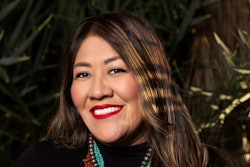New School Curriculum to Address Heart Disease Among American-Indian Youth
SEATTLE
Comprehensive Health Education Foundation (C.H.E.F.) has partnered with the University of Washington to develop a new, school-based curriculum that will help reduce cardiovascular disease among American-Indian youth. The curriculum will address heart disease prevention for students in grades 7-12, with an emphasis on preventive lifestyle changes.
Dr. Dedra Buchwald, M.D., Professor of Medicine at the University of Washington, says the university and the nonprofit organization can combine their collective strengths.
“We’re delighted to be working with C.H.E.F. …with an engaging format that combines substantive content with contemporary, interactive, multi-media, teaching modules, educators, kids, and parents will have a way to begin taking action against heart disease,” says Buchwald.
According to recent medical statistics, American Indians experience a significantly higher incidence of heart disease than the total U.S. population.
The curriculum will be introduced during the 2006-07 school year, and will be piloted in a variety of schools both on and off reservations in South Dakota, Montana, and Washington state. Each module in the “In Our Voice” curriculum series will attempt to explore a health topic in a user-friendly, culturally relevant way: tobacco prevention, body image, exercise, weight and nutrition, cardiovascular disease, and staying healthy for life.
Despite the Costs, More than 70 Million Adults Want to Head Back to School
MINNEAPOLIS
A new national study of the attitudes of adult Americans toward continuing their education indicates that more than half of American adults age 25 to 60 would like to continue their education – the equivalent of more than 70 million adult Americans.
The study, “Degrees of Opportunity,” sponsored by the online Capella University, found that adults overwhelmingly believe that advanced learning is an investment that pays. Nine out of 10 said that the benefits of higher education are equal to or greater than the time, money, and energy invested.
“One of the big surprises was the mix of reasons why people thought it would be beneficial to get more education,” said Dr. Lyungai Mbilinyi, author of the report. “We thought that the prospect of a higher income would come out on top, and although 71 percent did think additional education would help them earn more, several intangibles were rated even higher. Eighty-one percent associated higher education with a personal sense of accomplishment and 78 percent believed education would help them better develop their talents or pursue their interests.”
Despite barriers that have kept some adults from returning to school, including geography and time, more than half of those who did go back to school said they wish they’d done it sooner.
“Almost every respondent who offered advice said the equivalent of ‘Just do it!’ Despite the assortment of obstacles that many adults face when considering a return to school, the overwhelming majority believe the resulting benefits have made it worthwhile,” adds Mbilinyi.
Racism May Contribute to Hypertension in Some Black Women
BOSTON
A subgroup of Black women may be at higher risk for developing hypertension due to racism, say researchers at Boston University’s Slone Epidemiology Center.
Although it has been well documented that Black women have a much higher incidence of hypertension than White women, previous studies of racism and hypertension have been small and analyses have been cross-sectional. The Boston University researchers specifically examined whether perceptions and experiences of racism were associated with increased risk for hypertension in Black women and whether the associations were modified by other characteristics, such as place of birth and neighborhood racial composition.
In data obtained from the Black Women’s Health Study (BWHS), a collaboration between Boston University and Howard University, participants mailed a 1997 follow-up questionnaire intended to measure racism. The analyses were based on 2,316 new cases of hypertension reported during 1997 to 2001.
Although most women reported experiencing racism, there was little association of racism with incident hypertension, overall. However, associations were observed in some subgroups.
“Black women who were born outside of the United States, as well as Black women who grew up in predominantly White neighborhoods, experienced positive associations between racism and hypertension,” said lead author Dr. Yvette Cozier, an epidemiologist at the Slone Epidemiology Center and an assistant professor of epidemiology at Boston University School of Public Health.
“The associations were most evident in foreign-born women,” she added. This observation may reflect cultural differences in encountering and responding to racism in the U.S.
To better understand the association between racism and incidence of hypertension, as well as other health outcomes, the BWHS plans to conduct additional analyses on this subject.
|
Reader comments on this story: |
|
There are currently no reader comments on this story. |
© Copyright 2005 by DiverseEducation.com















